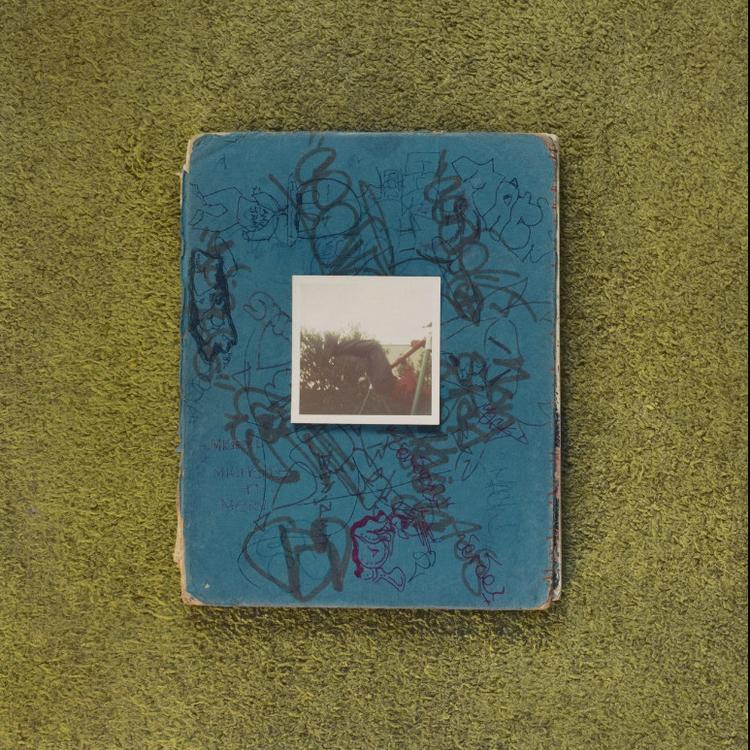
“The rap John Henry/ They send me deep in the railroad,” boasts Tariq Trotter, aka Black Thought. It’s the perfectly low-key self-mythology for a gifted technician who’s always been about the grind, eschewing flashy short cuts for refinement of craft, exhibiting a steel-driving work ethic from his prodigy days to his current station as a hip-hop oracle and survivor. The Black Thought value proposition is the same as ever, lyrical excellence, thrills derived from pure technique, head-snapping couplets and multilayered quotables. The fruit of his labor includes an enviable catalog with The Roots (see Things Fall Apart, undun), institutional approval (see Jimmy Fallon, Lin-Manuel Miranda), and a growing consensus that he is at once underrated and a serious GOAT candidate. With Streams of Thought Vol. 2—Traxploition if you’re nasty— he finally has the one crown jewel he’s lacked: A brainy and ballistic solo album, nine perfectly-honed bangers that give Thought’s rhymes the opulent framing they’ve always deserved. As ever, he’s put his back into it, and he’s triumphed on his own terms, mining white-knuckle exhilaration from verbal skill and luxurious soul beats. Almost 20 years after he promised us the next movement, here he pledges “the new shit”—the joke being that his old-head rap is executed with such flair and bravado, it sounds more advanced than any of the deconstructions and mutations you’ll hear from the younger cats. This isn’t throwback rap, but the platonic ideal. “Child rhymers don’t come at the old timers,” he quips on “Long Liveth,” and it’s not get-off-my-lawn so much as kiss-the-ring. The warning is persuasive: After decades of going deeper and working harder than anyone else, the rap John Henry finally has his submission form for untouchability, a master class in speaker-rattling, mind-expanding proficiency.
The mantra here isn’t reinvention so much as reclamation, an exhibition of traditional rap tropes as creatively fertile and emotionally rousing. Thought’s partner is Salaam Remi, a noted beatmaker well-credentialed for his work with Amy Winehouse and Nas. His aesthetic is streamlined splendor, and here he draws on the blaxpolitation soundtrack palette—think crisp snare pops, head-bobbing bass, humming oboes, trilling flutes—to create loose, live-sounding environments for the MC’s unrelenting flow. The result sounds like The Roots’ analog warmth blown up to symphonic scope, meaning Black Thought’s rhymes finally have the regality to match their diamond-cut precision. Check the gold-plated, vibranium-girded “Streets,” where a declaiming Black Thought is the center of gravity for soaring string arpeggios and clattering low-end rumble. What Vol 2. offers that its fine 9th Wonder-produced antecedent didn’t is breathing room; that five-song quickie was a throat-clearing exercise in sheer density, but here there’s a little more elasticity, funk, and finesse. Listen to how the tight Rat Pack groove on “Get Outlined” unravels into sax skronk and clattering percussion,” or to the way “How to Hold a Choppa” cools down for Thought to ruminate over cooing woodwinds and rattling hand percussion. There’s aggression, too, usually in quick bursts: “History Unfolds” is a clenched rock and roll brawler, while “Long Liveth” festoons its thunderous boom-bap with twinkling chimes, an immaculately bejeweled bludgeon.
Black Thought is “the breadwinner, dead center, head-spinner” in all this, not so much preaching black excellence as personifying it—embellishing, enjambing, flipping similes, creating dense webs of language that seldom leave room for proper choruses or hooks. (And when he does need a hook, he can sing it himself, as he does on the album-closing R&B bop “Conception,” credited to his Reek Ruffin alias.) He’s not the first rapper to wax cerebral about his own dopeness, but there’s a special pleasure in what Black Thought does here: Some rappers get duller as they age, but his years of dues-paying bear out in incredible linguistic punch and precision. He holds court like the statesman that he is, in a way that’s not unlike Pusha-T’s wizened oration on DAYTONA—the difference being that Pusha’s a coke-rap specialist where Thought’s porous imagination leaves more room for empathy and intersection. “Fentanyl,” the loose tumble of jazz that opens this set, could almost be a rejoinder to Pusha’s dealer sagas (“real drugs do real things,” intones Black Thought); meanwhile, where so many rappers connect black excellence to capitalism, Black Thought largely eschews Rollies and Benzes in favor of a less materialistic approach. “Save us, Sammy Davis, Belafonte, Quincy Jones/ Mahatma Gandhi, James Baldwin, Jesse Owens,” he calls out on “Streets,” an invocation of the ancestors that sets up Black Thought’s own tragedy-to-triumph memoir: “I changed from a rock boy to a rock star/ Hijack the elevator to the top floor/ I’m takin’ everything that’s left like a southpaw.” His expert braggadocio is grounded in stark realities. “What I’m haunted by is knowing where the bodies are buried,” he admits on “Soundtrack to Confusion,” and he unearths a few of them on “How to Hold a Choppa,” where he just needs 90 seconds to connect chattel slavery and lynchings to the prison industrial complex—all part of the ongoing “war on the heavily melanated.” When he pivots from the political history to family affairs, it lands like a sucker punch: “Now am I wrong if I teach my son to properly hold a choppa/ and how to bring down a helicopter?” More than one song speaks of blindness (“if you can’t see what’s happenin’, you just can’t see”), but the rap John Henry has been bearing witness for decades now. “I had a black thought and they called it wokeness,” he quips. He’s been saying this shit for years, and with greater eloquence than anyone else; the rest of us are still trying to catch up to Black Thought.